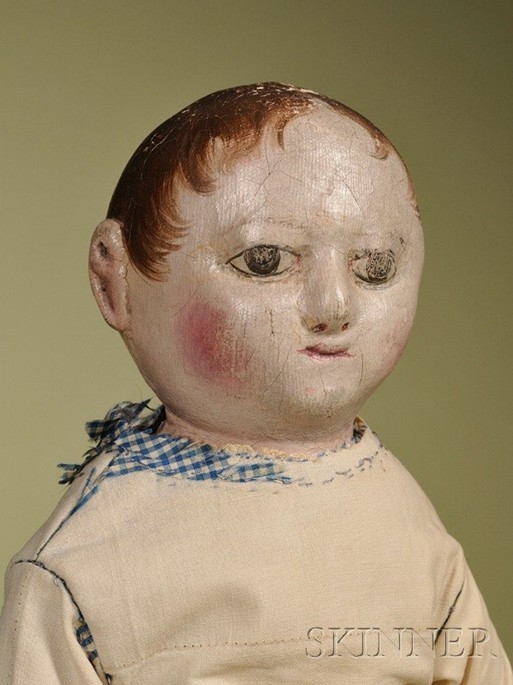For over 40 years, Norah Wellings created soft dolls and toys loved by children the world over.
Norah Wellings Biography
Norah Wellings was born in 1893 in Arleston Village, Shropshire, England. Her father Thomas was a master plasterer known for his skill and integrity, specializing in both plain and decorative plaster. Thomas and his wife Sarah had two children, Leonard, and Norah. Leonard was a well-educated yet quiet man who followed his father into the family plastering business at a young age, and served in the Royal Horse Artillery during WWI. Norah, two years younger was also well educated, excelling at botany and art, and maintained a close lifelong relationship with her brother. Norah was soft-spoken and very shy, not given to small talk. She considered herself plain, and a niece recalled seeing Norah speaking to her reflection, saying, “Nora, you are never going to be beautiful so you had better make yourself useful.” Useful she was, remaining at home with her mother helping to care for her invalid father until his death.
Norah’s Toys
In 1919, Norah landed a job as a designer with a Shropshire toy manufacturer, Chad Valley Company where she specializing in soft toys and dolls. There are no extant records from Chad Valley concerning the number of designers on staff, and who designed which toys, but it seems clear, based on her future production, that Norah’s influence on product line was strong. She remained with Chad Valley for seven years, and left for unknown reasons to start her own company with her brother, Leonard.
Victoria Toy Works Factory 1926-1959
Norah opened her own factory manufacturing soft tolls and toys in 1926 with six employees, some of whom were family members, in space rented from Leonard’s plastering premises. Eventually, Leonard ran the factory, a cousin managed the sales force, and Norah designed all the toys. In 1927, Norah showcased her dolls and soft toys at The British Industries Fair at White City. Her toys received a lot of good press, and even better, a positive response from toy buyers. In 1928, her line included the “Cora” doll which was presented to Queen Mary. By 1929, a larger facility was needed, and the company grew steadily.
Norah Wellings’ Quality Toys
Norah believed in producing a quality product all the way through from design to production. Wellings dolls were constructed entirely of soft materials including the heads which were molded buckram over a layer of plastic wood which was then overlaid by a steam pressed layer of felt, stockinet or velveteen. All faces were hand painted in sections, allowing one part to dry before the adjoining portion was painted. The company produced baby dolls, fashion dolls, toddler dolls, and a wide variety of novelty dolls including some dressed in accurate versions of native costume. Norah Wellings dolls often are identifiable by the cloth tags sewn into the clothing or on the bottom of a foot. Her dolls also always have an appropriate number of fingers. She also made pajama cases, tea cosies and telephone covers.
Closing the Doors of Victoria Toy Works
Unlike many manufacturers, Victoria Toy Works survived the war years. Partly thanks to a line of patriotic toys, and partly because so much of their staff to leave to serve in the military, the company managed to stay in production through the war, and until 1959 when Norah closed the factory after Leonard’s death. Although she had many offers from toy companies wanting to purchase her factory and designs, Norah refused them all, and burned not only her designs, but also the special tools used to execute them, and all unfinished inventory as well.
-By p4A Contributing Editor Susan Cramer.
Reference & Further Recommended Reading:
To search the Prices4Antiques antiques reference database for valuation information on hundreds of thousands of antiques and fine art visit our homepage www.prices4antiques.com





